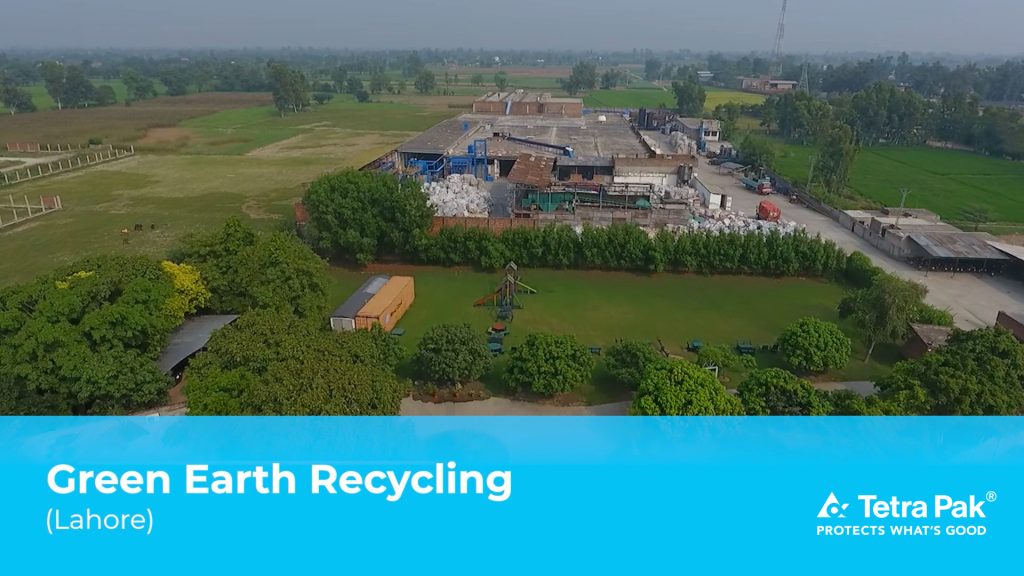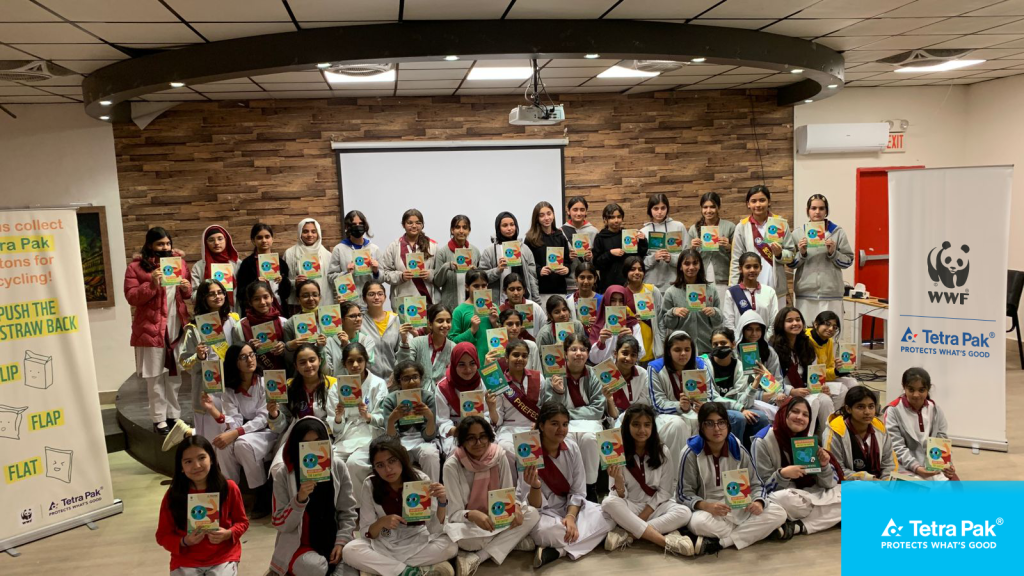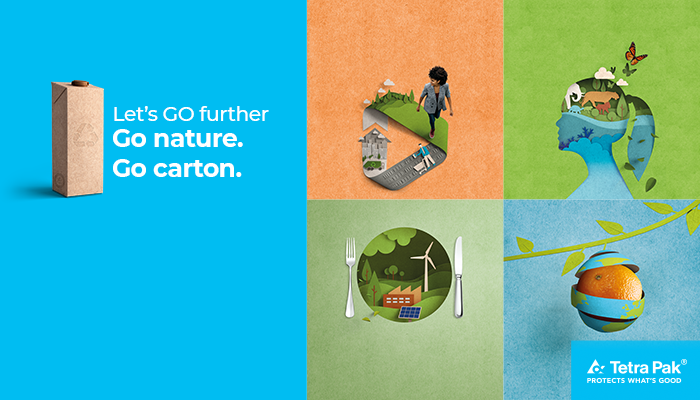Food packaging plays an essential role in feeding people throughout the world, but when it is not collected and recycled, it can be a source of waste. Tetra Pak, a leading company within the global food and beverage packaging industry, has steadfastly embedded sustainability into its corporate ethos. Adhering to the principle that “a package should save more than it costs,” the company has committed itself to pioneering environmental performance within the industry.
As a major user of paperboard, Tetra Pak has a responsibility to ensure the world’s forests are managed in a socially, environmentally and economically sound way. The company ensures that 100% of the paperboard used in its packages come from FSC™ Forest Stewardship Council™ certified forests. The Forest Stewardship Council is an international organization which promotes environmentally appropriate, socially manageable and economically viable management of the world’s forests. 100% of the packs that Tetra Pak produces globally are eligible to carry the FSC™ label on-pack. As per the company’s corporate policy, Tetra Pak utilizes 100% FSC Certified paperboard in its packaging material in all its converting factories around the world, including Pakistan.
Tetra Pak’s global efforts in managing and mitigating risks associated with timber sourcing have earned it a place on the CDP A-List Forests Program for four consecutive years. In 2023, Tetra Pak was one of only eight companies globally recognized for leadership in addressing deforestation within its supply chain.
Guided by the United Nations Sustainable Development Goals, Tetra Pak perpetually innovates to enhance its sustainability practices. The company’s portfolio includes groundbreaking innovations such as aseptic solutions, e-beam technology, fully renewable packaging, and operations with a minimized carbon footprint.
Tetra Pak’s vision for a circular, low-carbon economy propels the company to deliver solutions with the least carbon footprint and highest efficiency. The company remains on course to meet its 2030 carbon emissions reduction targets. Notably, Tetra Pak cartons, predominantly derived from plant-based materials, exhibit a significantly lower climate impact compared to their fossil or mineral-based counterparts. The lifetime carbon impact of a Tetra Pak carton is five times less than that of its steel or glass equivalents.
Recent shifts in the sustainability landscape have prompted Tetra Pak to reevaluate its approach to recycling and sustainable materials. In 2018, the company established an ambitious goal to manufacture packaging from renewable and/or recycled materials, ensuring full recyclability while upholding rigorous food safety standards. Tetra Pak’s commitment to this objective is underscored by its signing of the Ellen MacArthur Foundation New Plastics Economy Global Commitment and its collaboration with companies like Veolia to augment global beverage carton recycling.
In a strategic move to further its sustainability mission, Tetra Pak also announced a €120 million investment commitment over the coming years to enhance the capacity of its global recycling infrastructure. This significant investment will support Tetra Pak’s ongoing collaboration with over 170 local recyclers worldwide to expand and improve its packaging recycling capabilities.
In line with global initiatives, Tetra Pak Pakistan has significantly bolstered its recycling infrastructure through a strategic partnership with Green Earth Recycling (GER), facilitating the achievement of escalating recycling targets annually. This partnership has enabled the establishment of a self-sustaining local collection and recycling system, ensuring the commercial viability of carton recycling by-products. Over 70 percent of Tetra Pak’s packaging material comprises long, strong paper fibers that can be recycled multiple times. The polymers in its beverage cartons are repurposed into new products, such as roofing tiles, crates, park benches, and waste bins.

Additionally, in collaboration with WWF Pakistan, Tetra Pak conducts a Recycling Awareness program aimed at educating hundreds of school children around the country on the significance of recycling and environmental conservation.

Tetra Pak’s journey towards environmental responsibility is ongoing, marked by significant progress and a resolute commitment to creating a positive planetary impact through every facet of its operations. With its substantial investment in recycling infrastructure and continuous innovation, Tetra Pak is solidifying its position as a leader in sustainability and environmental stewardship.
The writer is the Sustainability Manager at Tetra Pak Pakistan Limited










